High Risk, High Reward
At the tender age of 18-years-old, Ratu Tagive was on top of the world. He had just been awarded a lucrative top-25 NRL contract with the West Tigers and looked set to take the competition by storm. However, few would have believed that less than 24 months later Tagive would have walked away from the game without ever making his debut.
Already struggling to juggle his full time training load with the West Tigers and study a full time double degree at the University of Western Sydney, Tagive was secretly attempting to deal with the financial and emotional burden of his mother’s secret gambling addiction.
“I would be at training and I would be getting calls from the landlord saying you know rent’s due by the end of the day? If it’s not in we will change the locks on the house,” he recalls. “I was 19 at the time. It was just so much pressure for me as a kid.”
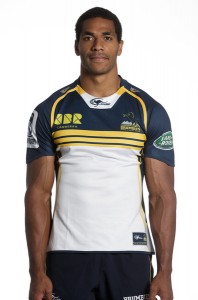
From the outside, Tagive’s story appears to be a simple case of a young man trying to make it as a sports star. However, the more you learn about the man, the more you learn to realise his story has far more to it than meets the eye. He has had to overcome more adversity in his 23 years than many would in their entire lives to get where he is today.
Tagive’s story begins way back in the small Western NSW town of Orange, were he was born into a large Fijian family. Tagive describes the small country town as a very dominant rugby league area, and the place was where he first began playing rugby league. When Tagive was 11-years-old his family relocated to Sydney where he continued developing his football prowess. Tagive recalls things started to change for him and his family after living in Sydney for only a few years.
“My older brother Penni was always a highly talented footy player … He knew from a really young age that he wanted to be a professional footy player,” he says. “I knew if he put his mind to something he would do it … When he did really start becoming successful people started looking at me more, they would hear my last name and say things like, ‘hey you’re Penni’s brother?’ And you know, as much as I respected my brother you always want to make your own name and not live in someone else’s shadows.”
Even a decade later Tagive still speaks about this with a perplexed look on his face. It is clear that his older brother is someone he admires and respects so greatly, yet even getting him to relive those days now it’s obvious that he was frustrated to be known by his last name rather than his own natural ability.
While older brother Penni’s career was taking off in a big way Ratu began forging his own path in the junior NRL ranks.
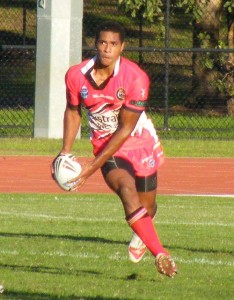 “I was approached by the West Tigers when I was going to school in Campbelltown, I would have been 15 or 16 at the time and they wanted to put me on a scholarship,” he says. “I actually ended up declining their offer and I ended up moving over to the Canterbury Bulldogs. I played under 16s with the Bulldogs and then they eventually moved me to Holy Spirit College in Lakemba of all places!”
“I was approached by the West Tigers when I was going to school in Campbelltown, I would have been 15 or 16 at the time and they wanted to put me on a scholarship,” he says. “I actually ended up declining their offer and I ended up moving over to the Canterbury Bulldogs. I played under 16s with the Bulldogs and then they eventually moved me to Holy Spirit College in Lakemba of all places!”
Tagive describes this time in his life as one that was incredibly exciting, yet one that took an unbelievable toll on him both physically and emotionally.
“In 2008 when I was going to Holy Spirit I was picked up by the Sydney City Roosters … It was obviously very exciting for a 17 year old kid, but at the same time I was exhausted. I was up training with the Roosters before the sun rises then I would get to second or third period at school and I would be falling asleep,” he recalls. “The worst part about that stage in my life was that the Roosters were training in the Sydney CBD and I was living in Campbelltown — that’s like a 45-minute train ride then another half an hour on the bus every morning just to get to training.”
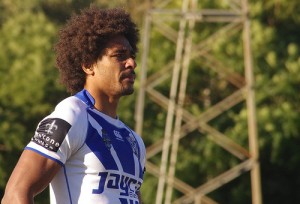
In a 24-month period which saw him move between three separate clubs, Tagive eventually ended up going back to where it all began when he finished school in 2010, signing a top-25 contract with the West Tigers.
“I moved back [from the Roosters] in 2009 to play with the Bulldogs again, and played Toyota Cup there until the end of 2010,” he says. “I would have loved to stay with the Bulldogs but the Tigers offered me a top-25 contract with the first grade squad so I ended up re-joining the West Tigers at the beginning of 2011.”
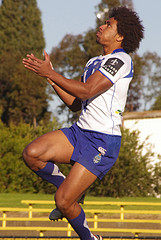
The next stage of Tagive’s life looked to be set. He was a young up-and-coming NRL star who had just signed a top-25 contact with a NRL club at the age of 18. From all accounts, Tagive looked as though he was going to emulate the success of his older brother Penni and continue through the ranks of the NRL to become a star of the competition. Tagive laughs now when asked whether he would have ever thought that less than two years after signing this deal he would have ended up walking out on the NRL to move to Canberra and work in a hotel collecting bags for $17 an hour.
“It was a build-up of a lot of things that really got me off track at the West Tigers. At the time I was studying a double degree at the University of Western Sydney and I was training full time with the first grade squad at the West Tigers,” he says. “It was getting pretty full on … and to add on top of that I had a lot of stuff going on at home, there was just a lot of pressure on me at really young age.”
While all of these other things were going on in Tagive’s life, his biggest concern was something that no one outside his immediate family was even aware of. Tagive’s mother had developed a major gambling addiction, one that not only ripped her family apart but also played a big role in the demise of son Ratu’s footballing career in Sydney.
“Looking back now I can easily see how I burnt myself out that year,” he says. “I wasn’t eating right, I wasn’t hydrating properly, so I didn’t play good football at all. And then mentally I wasn’t going to school [because] I couldn’t focus. I ended up dropping out of the course and I guess the wheels just sort of fell off.”
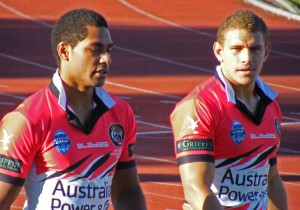
The West Tigers had no idea about the issues Tagive was dealing with at the time.
“I didn’t speak to anyone [about them] so nobody knew what was going on with my family and everything outside of football,” he admits. “It’s that much of a cut-throat job. I wasn’t performing [as a player] so I got dropped out of the Toyota Cup team and was back playing club football. I was just young and frustrated and didn’t even care.”
By the end of the 2011 season Tagive had gone from the top to the very bottom but he was determined to come back stronger for the 2012 season. Putting aside his personal issues, he fronted training on the first day of the 2012 pre-season. But a few minutes into the session, Tagive was called in to the coach’s office.
“Basically I walked into the office and the conversation was ‘what are you doing here? We have terminated your contract.’” he recalls. “After everything I had been through in 2011, to be hit with that a massive hit to the confidence, that was a hard pill to swallow.”
Walking out of the club that day Tagive’s career was at the cross roads. He would now have to return home jobless to a household which was already in major financial difficulty. Wanting a fresh start, Tagive made the decision to leave the busy city of Sydney to try and start a new life in Canberra where he had some family.
“I moved down to Canberra and I was helping people move their bags at a hotel for 17 dollars an hour,” he says. “It was a big change but something I really needed to do.”
Tagive’s life was slowly returning to normal. He had a steady job, he’d rebuilt his relationship with his mother, had returned to study, and had even found himself a new partner along the way. However, it wasn’t until he was sitting at home watching a NRL match which featured several of his ex-teammates that he realised there was something else missing.
“With all due respect to those guys, I was sitting there watching and thinking I know I’m better than you,” he says. “It really just reignited a flame. I don’t think you ever really lose that.”
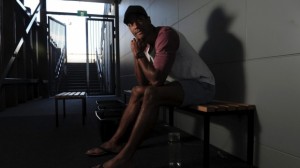
With the flame to play reignited, Tagive got in contact with his manager who didn’t even know that he was living in Canberra.
“I said ‘I know I have gone AWOL but I’m actually living down here in Canberra and is there any way you can speak to the Raiders or anything for me?'”
Although it was a big step down, Tagive returned to play club rugby for the Queanbeyan Kangaroos. He spent two seasons with the Roos and was a clearly dominant player, however his form in the local competition did not draw any major interest from the Territory’s only NRL club, the Canberra Raiders.
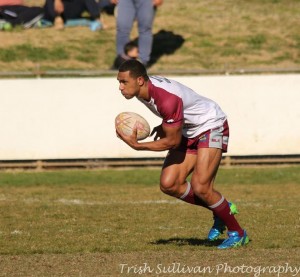
At the end of the 2014 rugby league season Tagive decided to take things into his own hands. In a bid to get his name out there again he cut up a highlights package and sent it around to sporting clubs.
“I literally just went into the club and asked for [footage of] all the games, and just cut up all my highlights and made the DVD from there,” he says. “I ended up going on to LinkedIn and I dare say I annoyed a hell of a lot of people.”
Tagive remembers sending his video all over the world, from Canberra to Queensland and all the way to France. By pure coincidence his partner Victoria just happened to be working for one of the ACT Brumbies’ minor sponsors, and through her connection to the Brumbies Tagive’s video ended up landing on the desk of Brumbies coach, Steve Larkham.
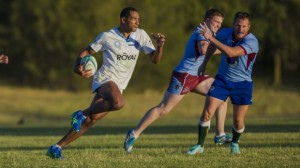
Tagive’s persistence paid off. He was sitting at home when he received a phone call from Steve Larkham who invited him along to train with the Brumbies’ pre-season squad.
“That was a surreal sort of a phone call to have,” he says. “Let alone to get a second chance at a career, but to have somebody that you have looked up to as a kid like Steve Larkham calling you was amazing.”
As hard as it was to change codes and start full time training with a club that had made him no guarantees, Tagive did not hesitate to have a go at the Brumbies while continuing to work and study.
“I mean, yeah, it was a massive commitment to make, but I am lucky enough to have great support from my girlfriend and her family who have encouraged me to chase my dream.”
Tagive has now trained with the Brumbies for four months full time, and it was only in the last three weeks that he started getting any sort of payment from the club. In the meantime he has continued to pour beers at the Gungahlin Lakes Club.
“We will finish training on a Friday afternoon and some of the boys will ask me if I want to go see a movie or something,” he says. “I tell them I have to go to work and they think I’m joking.”
Tagive’s partner has recently taken a second job to help cover their loss of income due to Tagive’s heavy training schedule. This is just another example of the many commitments and sacrifices he and the people around him have made so he can continue to chase his dreams.
Tagive has worked harder and sacrificed more than most people could imagine to get to where he is today. Only time will tell whether this is enough for him to achieve his dream. One thing’s for sure, though: the man will definitely not die wondering.
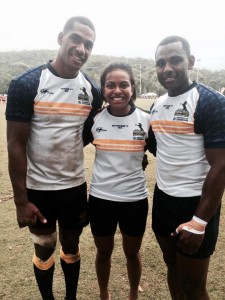
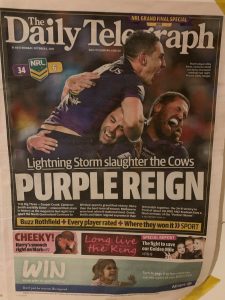
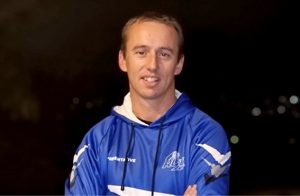
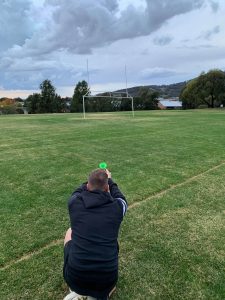
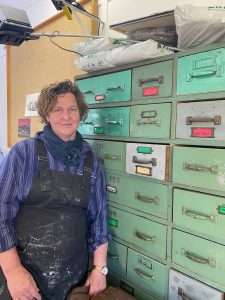
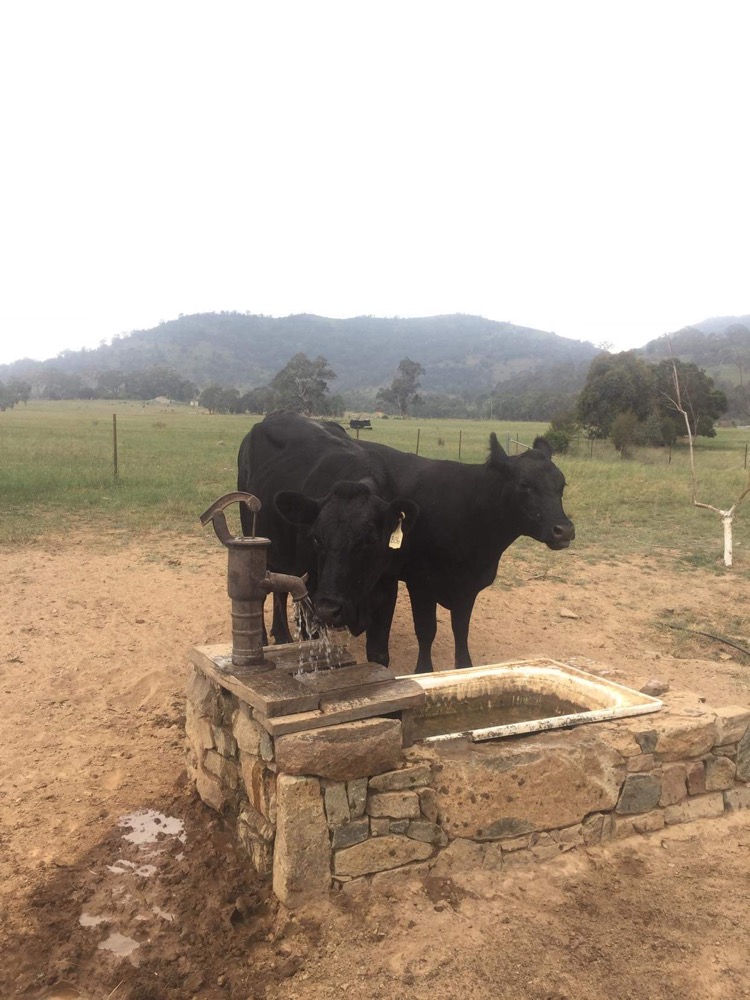
Be the first to comment!